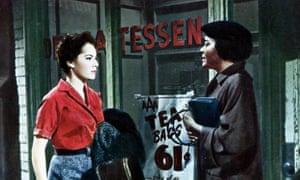Rebecca Hall Talks Complicated Notions Of Bi-Racial Identity In Directorial Debut ‘Passing,’ ‘Tales From The Loop’ & More [Deep Focus Podcast]
The Playlist
2020-06-10
Rodrigo Perez

Actor Rebecca Hall comes from a unique and interesting pedigree and lineage. There’s the surface element of that pedigree which could be seen as aristocratic privilege in the world of the arts. She is the daughter of the famous theatre director Sir Peter Hall (who passed away in 2017) and her mother is the legendary opera singer and stage actress Maria Ewing. Hall attended Cambridge University’s constitute school, St Catharine’s College, studied English, and eventually found her way back to acting after some time briefly spent as an actor during childhood.
Known for an eclectic career that took off after an early breakthrough performance in Christopher Nolan’s “The Prestige,” Hall’s also appeared in such movies as “Vicky Cristina Barcelona,” “Frost/Nixon,” Nicole Holofcener’s “Please Give,” Ben Affleck’s “The Town,” Joel Edgerton’s “The Gift,” and Antonio Campos’ striking indie “Christine” which brought her much extra acclaim to an already celebrated career.
But her personal identity, or at least the one of her parents, is much different. Hall’s mother is from Detroit, Michigan—perhaps an unlikely place as any to birth an opera singer—and bi-racial with African American and Dutch ancestry. Her grandfather was also bi-racial and to hear Hall tell it, both of them had a very complicated and complex struggle with their identity and how they appeared to others in the world.
This struggle, this question of identity and who you pass as in the world is something Hall tries to reckon with in “Passing,” her upcoming directorial debut which probably couldn’t be more timely. An adaption written by Hall as well, and something she’d been hoping to make for years, “Passing” is based on Nella Larsen’s 1920s Harlem Renaissance novel of the same name that explores the practice of racial passing, a term used for a person classified as a member of one racial group who seeks to be accepted by a different racial group. The film stars Tessa Thompson and Oscar nominee Ruth Negga as two reunited high school friends, whose renewed acquaintance ignites a mutual obsession that threatens both of their carefully constructed realities.
In this latest episode of our Deep Focus Podcast, Hall discussed “Passing” at length, including the ideas of permission and permits needed to try and tell these kinds of stories and the charges of cultural appropriation that can be lobbied at one when making them. But her original statement of intent is perhaps most succinct and eloquent when she said: “I came across [Passing] at a time when I was trying to reckon creatively with some of my personal family history, and the mystery surrounding my bi-racial grandfather on my American mother’s side. In part, making this film is an exploration of that history, to which I’ve never really had access.”
At the time, she described “Passing” as an astonishing book “about two women struggling not just with what it meant to be Black in America in 1929, but with gender conventions, the performance of femininity, the institution of marriage, the responsibilities of motherhood, and the ways in which all of those forces intersect.”…
Read the entire article and listen to the podcast (01:04:15) here.




